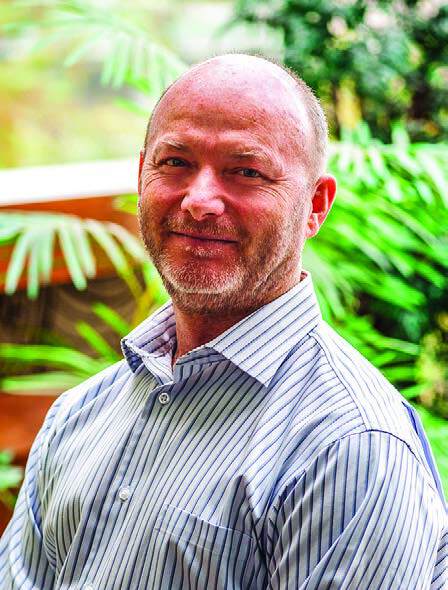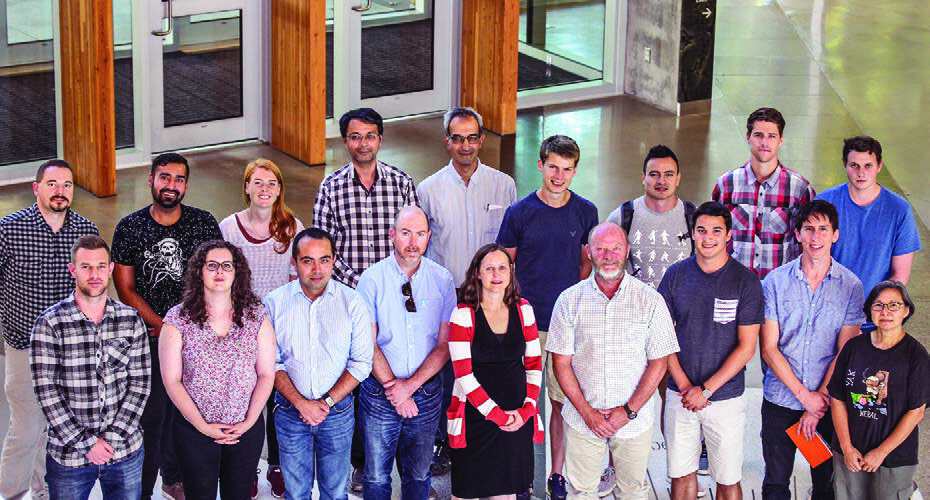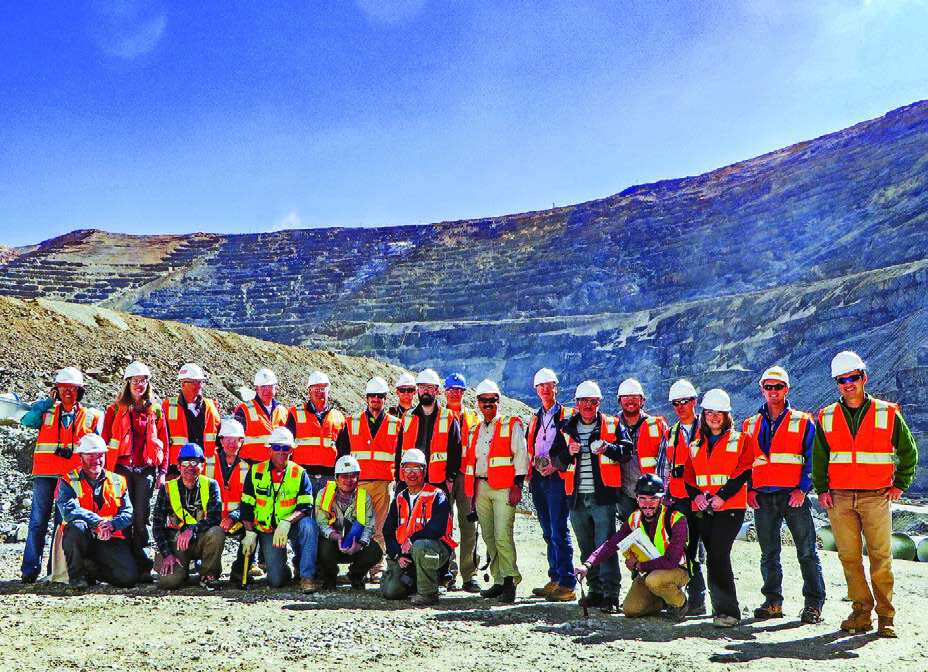
When explorer Craig Hart saw the Mineral Deposit Research Unit (MDRU) director position advertised over a decade ago, he realised that he “couldn’t design a better situation.” After working for more than 20 years on mineral exploration research around the world, with one foot in academia and one foot in industry, the MDRU directorship at the University of British Columbia (UBC) fitted his field-boot-clad feet to a T.
Hart has been busy at the helm of MDRU for almost 10 years, guiding about 40 new graduates into industry and pushing MDRU’s impressive alumni list to over 200 people. Based at UBC’s Point Grey campus, he manages a team of senior researchers and graduate students who are solving exploration challenges at sites around the globe. He is peering down a microscope choosing rocks to age date one minute and discussing kilometre-scale alteration footprints and hydrothermal ore systems the next.
Given the “rollercoaster” nature of the industry, and the tough downturn of recent years, Hart says one of his biggest challenges has been choosing relevant, timely and useful topics for short courses. Hart has organized and taught about 35 short courses during his tenure as MDRU director, including one or two at Roundup every year. His goal is always to gauge the current state of the industry and match it with the academic knowledge being generated at universities.

Gold, he says, is always a winner, but his favourite moment when delivering these courses is when he realizes he has paired the right topic with the right academic speaker and industry participants are leaning forward and nodding, experiencing their “light-bulb moment.”
Hart’s own light-bulb moment came during his undergraduate biology studies at home in Ontario. Biology initially appealed to Hart because he loved camping and being outside, but when he realized his fellow biology students were heading off to unpaid summer jobs “counting lupins and measuring leaf size” and geology students were taking on well paid jobs and flying around in helicopters, he quickly switched to geology.
The industry was booming when he graduated, and he walked straight into a field geology job with government geologists in the Yukon. In 1992 he moved to the territory, initially as a project geologist with the precursor organization to the Yukon Geological Survey (YGS) and returning years later as the director of mineral services. He moved to Perth, Australia, to complete his PhD at the University of Western Australia in 2004, and then stayed down under to take on a senior research fellow role at UWA.
Hart admits that the job of a geologist is “far more complicated” than when he graduated in 1986. Today, in addition to the core skills – such as petrology, field mapping, structural geology – graduates need to be digitally savvy, able to collect, manipulate and interpret large volumes of data, but also be financially and socially aware, ready to converse with investors and communities. He feels that undergraduate programs don’t equip students with these necessary skills and he tries to include them in his graduate-level training.

Together with his respected predecessors in the MDRU director role and an impressive team of past and present MDRU senior researchers, Hart has created a mineral exploration “alumni army” like no other. All AME members are likely to be, or work with, an MDRU alum. Of the 200 graduates to date, many have now taken on senior management positions at major mining houses, started their own junior exploration companies or become successful industry consultants.
Hart’s ongoing satisfaction is seeing his graduates using the skills they developed during their time at MDRU to continue learning and evolving. He is always pleasantly surprised to hear from graduates who call after years working in industry, offer to support a current project or a student and give back to the industry that supported them, starting the cycle at MDRU all over again.
